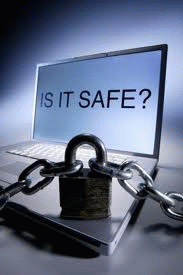|
Virus Protection
Virus Protection, Computer Safety and Identity Theft Computer Virus Protection is critically important today to protect your computer from Identity Thieves. It may seem like this is a tough and complicated task, but with a few simple steps we will help to outline the best ways to protect your computer equipment as well as your Identity. 1. Anti-virus software - Access to anti-virus software today is easy. You can buy any of the traditional anti-virus brand software such as Norton or McAfee to name a few. These products usually come in one year subscriptions and will run daily updates in the background so that you don’t have do anything other than make sure you have subscribed. Additionally, many broadband carriers like Comcast provide a full virus protection for no charge. Check with your local provider to see if they have an offer. There are a number of FREE antivirus software programs that you can now use that will provide excellent antivirus coverage. Check out Avast, Microsoft Essentials and AVG to name a few. 2. Keep Security Patches Updated – vulnerabilities in software are being discovered all the time. It’s important to update your platform daily. Most computers will do this automatic for you and install the updates, check your systems setting and make sure its set for automatic updating. 3. Firewalls are not an option – whether your still using a dial up network connection for the internet or if you on a broadband system, its essential to use a firewall for your computer to protect against identity theft. Most recent computer operating systems today offer a firewall all that I s needed is that you turn it on. In the event that your computer does not have that feature, most of the 3rd party anti-virus software offer “firewalls” as part of their protection package. Don’t surf the internet without it. 4. Browser security – for some reason many people are under the illusion that if they have anti-virus and a firewall their computer is totally safe. NOT!! Entering a non-secure website with a browser can unleash malicious code and can install malware / spyware on your computer. If your going to use Microsoft Explorer make sure you using the most current version. You may also want to look at the current version of Firefox or Google Chrome as alternates for security.
The past 2 years we have seen an increase in attacks on Facebook, where an unsuspecting user clicks on a link that someone has sent them in an email, or on a Facebook page and that opens up a non secure browser and literally attacks your computer; stealing your email list or hijacking your computer. There is a class of virus protection software called antispyware that will protect your computer against these attacks and is really necessary along with antivirus and firewall software today. One of the best in class anti-spyware is Superantispyware they offer both a free version that checks your computer and an inexpensive full install that protects your computer. 6. Using IM to chat – know who you are chatting with using IM. Many times users are infected by someone who IM’s them with a link for pictures or videos. These links can have both worms and Trojans and they are designed to infect your computer. 7. Email Attachments – avoid attachments from unexpected emails. A common ploy of identity thieves is to send you an official looking email and ask you to download an attachment. That attachment usually unleashes an code designed to infect your computer much like the link in an IM or going to an unsecure website. This is another reason for quality virus protection software. 8. File sharing – there are dozens of Free P2P networks like Torrent, Kazaa that are designed to share files among members. However most of these sites are infected with Trojans, viruses, worms, adware, spyware and malware and other malicious codes. These sites are not anonymous and trying to file share is risky at best. Beware – there is no free lunch with these kind of files as they say. 9. Internet Scams & Email Hoax – Not sure if you have received any emails promising you lottery winnings, or a sad story about someone being sick and wanting to leave you their money, or the infamous Nigeria Bank scam, there are literally dozens, they come in all sizes and shapes. They can look official from the IRS or FBI, or from a credit card company or bank. Beware; they have only one intent is for you to give them information on you through any number of ways so they can steal your identity and money. Don’t fall for these.
|
Free ID Theft Newsletter Subscription
Additional Identity Theft Articles
AARP - Earthquake Scam
AARP - Elderly Scam
AARP - Email Hoax
AARP - Fraud Protection
AARP - 2012 Fraud Scams
AARP - Social Media Twitter
AARP - Social Security Scams
Business - BBB Beware
Business - Is your Business at risk?
Business - ITC warns of Business Risk
Business - Small Business Prevent, Detect and Remedy
Business - Secretary of State Warns of Business Identity Theft







